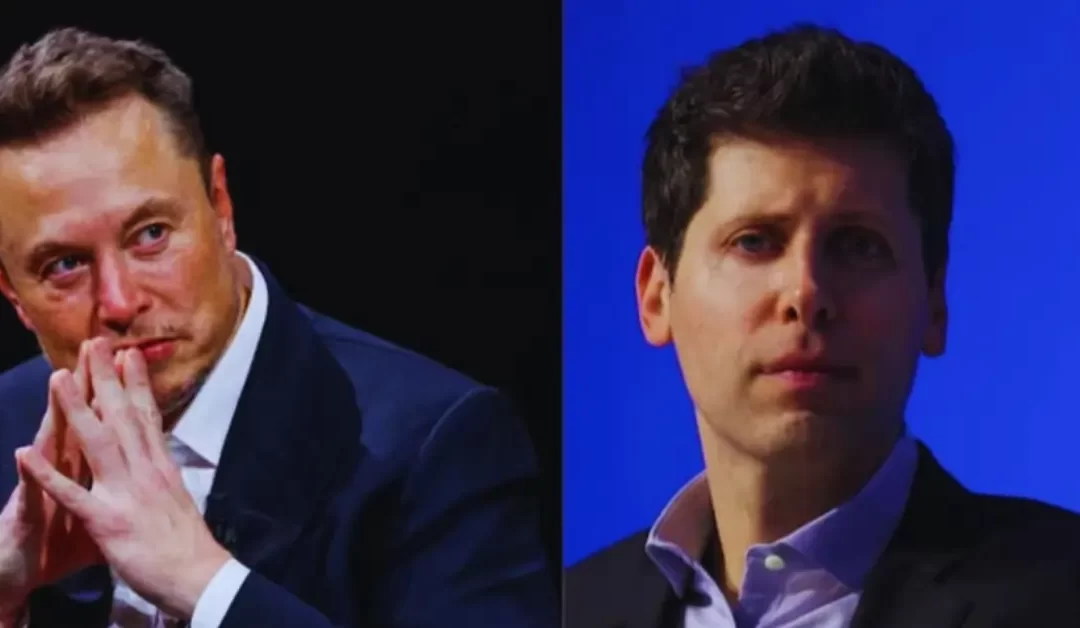Feb 10 (Reuters) – A consortium led by Elon Musk has made a staggering $97.4 billion offer to acquire the nonprofit organization controlling OpenAI. This move marks another aggressive step in Musk’s ongoing battle to prevent OpenAI from transitioning into a for-profit company. The bid is expected to intensify the long-standing tensions between Musk and OpenAI’s CEO, Sam Altman, regarding the future direction of the company at the forefront of the generative AI revolution.
Shortly after the news broke, Altman responded on X (formerly Twitter), dismissing Musk’s offer with a cheeky remark: “No thank you, but we will buy Twitter for $9.74 billion if you want.” This exchange further highlights the ongoing rivalry between the two tech magnates.
Musk’s History with OpenAI and AI Ventures
Musk co-founded OpenAI with Altman in 2015 as a nonprofit aimed at ensuring AI development benefited humanity. However, he parted ways with the company before it gained significant traction. In 2023, he established a rival AI firm, xAI, intensifying the competition in the artificial intelligence sector.
Musk, also the CEO of Tesla and owner of the social media platform X, has positioned himself as a close ally of former U.S. President Donald Trump. He has invested over $250 million in Trump’s re-election campaign and is currently heading the newly formed Department of Government Efficiency, which aims to streamline federal bureaucracy. Recently, Musk publicly criticized a $500 billion OpenAI-led initiative announced at the White House, further escalating hostilities.
The Legal Battle Over OpenAI’s Transition
OpenAI is actively working to shift from its nonprofit roots to a for-profit model, arguing that such a change is necessary to attract the capital required to advance its AI research. Musk, however, is strongly opposed to this shift and sued OpenAI and Altman in August last year. The lawsuit alleges that OpenAI’s leadership is prioritizing financial gains over its original mission of benefiting humanity.
In November, Musk sought a preliminary injunction to prevent OpenAI from proceeding with its transition. “It’s time for OpenAI to return to the open-source, safety-focused force for good it once was,” Musk stated on Monday. “We will make sure that happens.”
OpenAI’s Response and Market Implications
According to a report from The Information, Altman has informed OpenAI employees that the board has no interest in Musk’s takeover attempt. OpenAI backer Microsoft and Musk’s representatives have yet to respond to requests for comment.
The consortium leading this bid includes Musk’s xAI, Baron Capital Group, and Emanuel Capital, among others. The Wall Street Journal reports that xAI could potentially merge with OpenAI if the acquisition is successful. Recently, xAI secured $6 billion in funding, pushing its valuation to $40 billion.
The Financial and Legal Challenges of the Deal
Musk’s bid for OpenAI adds another layer of complexity to the ongoing transformation of the AI company. Industry experts predict that the bid will face regulatory and financial hurdles. “This move is definitely throwing a wrench in things,” said Jonathan Macey, a corporate governance professor at Yale Law School. “If OpenAI’s board decides to sell for a lower price to another entity, it could raise concerns about whether the nonprofit’s beneficiaries are being properly protected.”
In its latest funding round, OpenAI was valued at approximately $157 billion, making it one of the most valuable private companies globally. Earlier this year, Reuters reported that SoftBank Group was in talks to lead a funding round of up to $40 billion, which would increase OpenAI’s valuation to $300 billion.
Given the magnitude of Musk’s bid, raising sufficient capital remains a challenge. While Musk’s Tesla stock is valued at around $165 billion, his financial leverage may be stretched thin following his $44 billion acquisition of X in 2022. Experts suggest he could finance the bid by selling Tesla shares, securing loans against his stock, or leveraging his stake in SpaceX, which is valued in the tens of billions of dollars.
The Future of OpenAI and AI Competition
As global news continues to track developments in the AI sector, analysts believe Musk’s bid will complicate OpenAI’s transition into a for-profit entity. “This offer will significantly impact OpenAI’s current fundraising efforts and their plans to restructure as a for-profit corporation,” said Gil Luria, an analyst at D.A. Davidson. “With credible investors backing Musk’s proposal, OpenAI’s board has a fiduciary duty to consider it seriously.”
Whether OpenAI’s board will engage with Musk’s bid remains uncertain, but the outcome could shape the trajectory of the artificial intelligence landscape. As technology news today continues to evolve, the battle for control over AI’s future is far from over.































